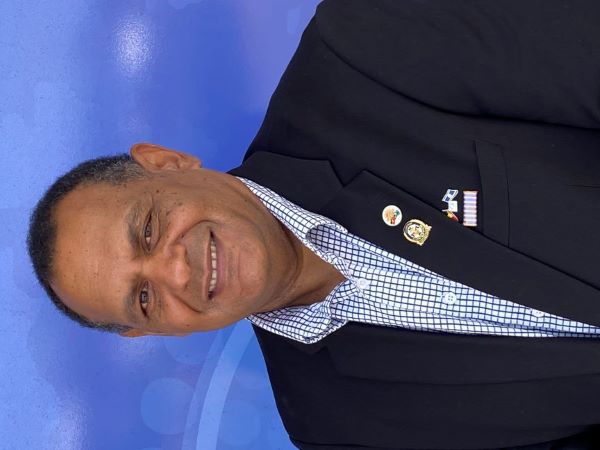
Surrounded by family members working in health at the age of 16 Stevan Ober followed suit with his first job in an Aboriginal nursing home as an AIN.
He said he was hooked from the start.
“It was my first taste of health and I enjoyed it after that because I was working with Elders trying to keep them from being a statistic,” he said.
From the age of 10 he saw first-hand the impacts of health inequity when his grandfather refused treatment for cancer, later succumbing to the illness.
“I was sick of seeing my elders and community members here on the Fraser Coast die at an early age.
“I was sick of going to funerals of people younger than me or just older than me.”
Extremely committed to the work, Stevan took on formal education and took on a role as an Aboriginal health care worker. Based in the community, Stevan worked with multiple generations on their health journey. His commitment didn't go unnoticed, and it wasn’t long before he took on leadership roles.
Fast forward to 2015, and Stevan found himself as the CEO of Galangoor Duwalami Primary Health Care Service in Hervey Bay. A role which he has seen and oversee Galangoor grow into a large Aboriginal Community Controlled Health Service in Regional Queensland with nearly 60 staff.
This year Stevan has come full circle back to his roots at the health service taking a seat on the WBHHS Board.
“For me, Galangoor was probably the community aspect of it all.
“But the thing for me now, seeing what NGOs face, it's about how do we effect change in the health system?” he said.
“How do we change a system that's cracked?
“Being in the role now, I am going to advocate clearly across all aspects of health, not just community control but all State government to effect change and look at the big picture.”
When you talk to Steve about his journey, he humbly credits his success to the incredible support network around him and his deep roots in the community.
While he acknowledges Indigenous health is a complex issue with barriers that will need ongoing attention, funding and service delivery, he has watched a slow turning of the tide.
“I've seen people that are community Elders now that if we didn't engage in the health system, then they would be a statistic, but instead we still see them walking the streets.
“We've seen Elders that have family history showing them they wouldn't have gone past the age of 60 so there's been improvements.”